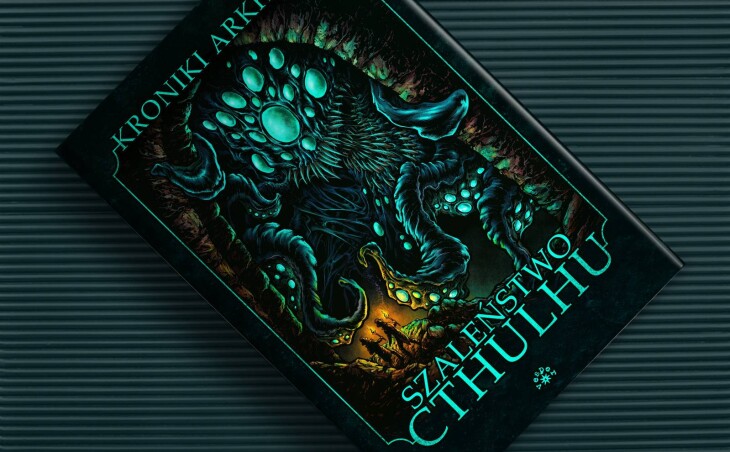The HP Lovecraft mythology is a creation that has been influencing subsequent generations of writers for many years. These mysterious and often macabre pieces inspire hundreds of authors. These include, for example, Neil Gaiman, Arthur Clarke and Robert Silverberg. Often such individual, inspired stories are published in the form of an anthology. Today we take a look at the latest collection of this kind, the Cthulhu Madness from Vesper. I invite.
Let’s go to the mountains of madness. It will be fun – they said
As I mentioned earlier, we are dealing with an anthology of works somehow inspired by the work of Samotnik from Providence, specifically the short story In the Mountains of Madness. The book itself is quite a bulky volume. Inside, apart from the original Lovecraft work, in a phenomenal translation by Maciej Płazy, we can find 16 other short stories. Some of them are classics from Silverberg and Clarke, and others are new to the Polish reader. Some of the stories included in the volume were probably only by accident, as they have nothing to do with the base story. However, the rest is a different story. So here we have a couple of stories that expand on the incidents in the original, a few that might as well be a parody, and those that are based on In the Mountains of Madness.in a very fleeting way, but still palpable. I will not describe each of them here, but let me tell you that the best in this collection is not the original story, but Artemis about Robert Silverberg’s Hundred Breasts. Unfortunately, Robert’s artistry beats Howard’s workshop.
Vesper, Vesper, you …
This publication gives us an insight into the writing workshops of various authors. The pen is better for some, and worse for others. Therefore, there is no clear answer to what extent this volume stands in terms of literary value. However, something else can be said about the editorial side. As it is Vesper, the most notable attention is the phenomenal selection of translators, led by the aforementioned Maciej Płaza. Most, if not all, of the published works maintain the spirit of the original texts, and this is not easy, especially in short forms with often quite complex structure (see White Firein this collection). Another, very important aspect that is invariably associated with the books published by Vesper is their graphic design. They are always decorated with really high-quality illustrations. Unfortunately, this is not the case here. Yes, the style of the drawings is consistent and you can see that Maciej Kamuda had an idea for the whole thing, but they have nothing to do with the images we were used to by the publishing house in its other positions. Against the background of, for example , The Dread at Dunwich and the illustrations there, these appear very infantile, not to say childish. They do not maintain the spirit of the stories and the general atmosphere of Lovecraft‘s prose and the authors inspired by it.
All in all, this collection is a good place to get acquainted with the different writing styles of many little-known authors (at least in Poland). Most of them are winners of Nebula, Hugo and other horror and fantasy awards. However, this is not a collection for everyone and you can see that many of the stories are found in it completely by accident. I appreciate the willingness to introduce readers to other views on Cthulhu mythology, but something clearly did not work out here. On the one hand, we have outstanding stories (Silverberg), and on the other, simply the most ordinary shit (Pulver Sr.). You can familiarize yourself with it, but there is no obligation. Well, unless you want to see good examples of translations of various stories.
Nasza ocena: 6.8/10
A medium-quality collection that saves only the translation. I do not recommend it, but I also do not advise against it.PLOT: 6.5/10
Characters: 7/10
STYLE: 6/10
EDITION: 8/10

